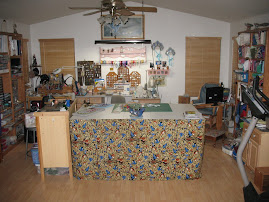Thanks for stopping by.
I have been relating with my two adopted kids seeing some RAD patterns in them. Scary stuff when passed on and innate to their own journey. Made me stop and look at it. I have really been aware of the effects of some of this. Felt bad about the way I responded to the world. Understanding is the beginning of the knowledge needed to make that change. It is not about feeling bad about myself it is about identifying why I am this way.Fondly
Donetta
Childhood attachment issues leave an adult vulnerable to difficulties
in forming secure adult relationships. Patterns of attachment continue through the life cycle and across generations.
New relations are affected by the expectations developed in past relationships. There is a strong correlation between insecure adult attachment and marital dissatisfaction and negative marital interactions. If an adult does not feel safe with others, he/she will tend to be either rejecting of their partner or overly clingy.
Attachment problems are often handed down transgenerationally unless someone breaks the chain. As a parent, an insecurely attached adult may lack the ability to form a strong attachment to their child and provide the necessary attachment cues required for the healthy emotional development of the child thereby predisposing their child to a lifetime of relationship difficulties.
Depending on the genetic personality style of the individual and the early life events experienced, insecurely attached adults fall in one of two categories of insecure attachment:
Intense anger and loss
Critical of others
Sensitive to blame
Lack of empathy
Views others as untrustworthy
Views others as undependable
Views self as unlovable or "too good" for others
Relationships feel either threatening to one's sense of control,not worth the effort, or both
Compulsive self-reliance
Passive withdrawal
Low levels of perceived support small
Difficulty getting along with co-workers, often preferring to work alone
Work may provide a good excuse to avoid personal relations
Fear of closeness in relationships
Avoidance of intimacy
Unlikely to idealize the love relationship
Tendency toward Introjective depression (self critical)
ANXIOUS/AMBIVALENT
Compulsive Care giving
Feel over involved and under appreciated
Rapid relationship breakups
Idealizing of others
Strong desire for partner to reciprocate in relationship
Desire for extensive contact and declarations of affections
Over invests his/her emotions in a relationship
Perceives relationships as imbalanced
>Relationship is idealized
Preoccupation with relationship
Dependence on relationship
Heavy reliance on partner
Views partner as desirable but unpredictable (sometimes available, sometimes not)
Perceives others as difficult to understand
Relationship is primary method by which one can experience a sense of security
Unlikely to view others as altruistic
Sensitive to rejection
Discomfort with anger
Extreme emotions
Jealous
Possessive
Views self as unlovable
Suicide attempts
Mood swings
Tendency toward analytic depression (dependent depression)
GOALS OF THERAPY
Identify early losses
Mourn the loss of that which never was but yearned for deeply
Provide closure to the unresolved relationship longings with parental attachment figures
Reorganize belief system and physiological reaction to attachment relationships
Gratefully, attachment styles are not fixed in stone and with either positive life experience or appropriate therapeutic intervention and a strong desire for change adults can alter their relationships and experience true intimacy and closeness.








